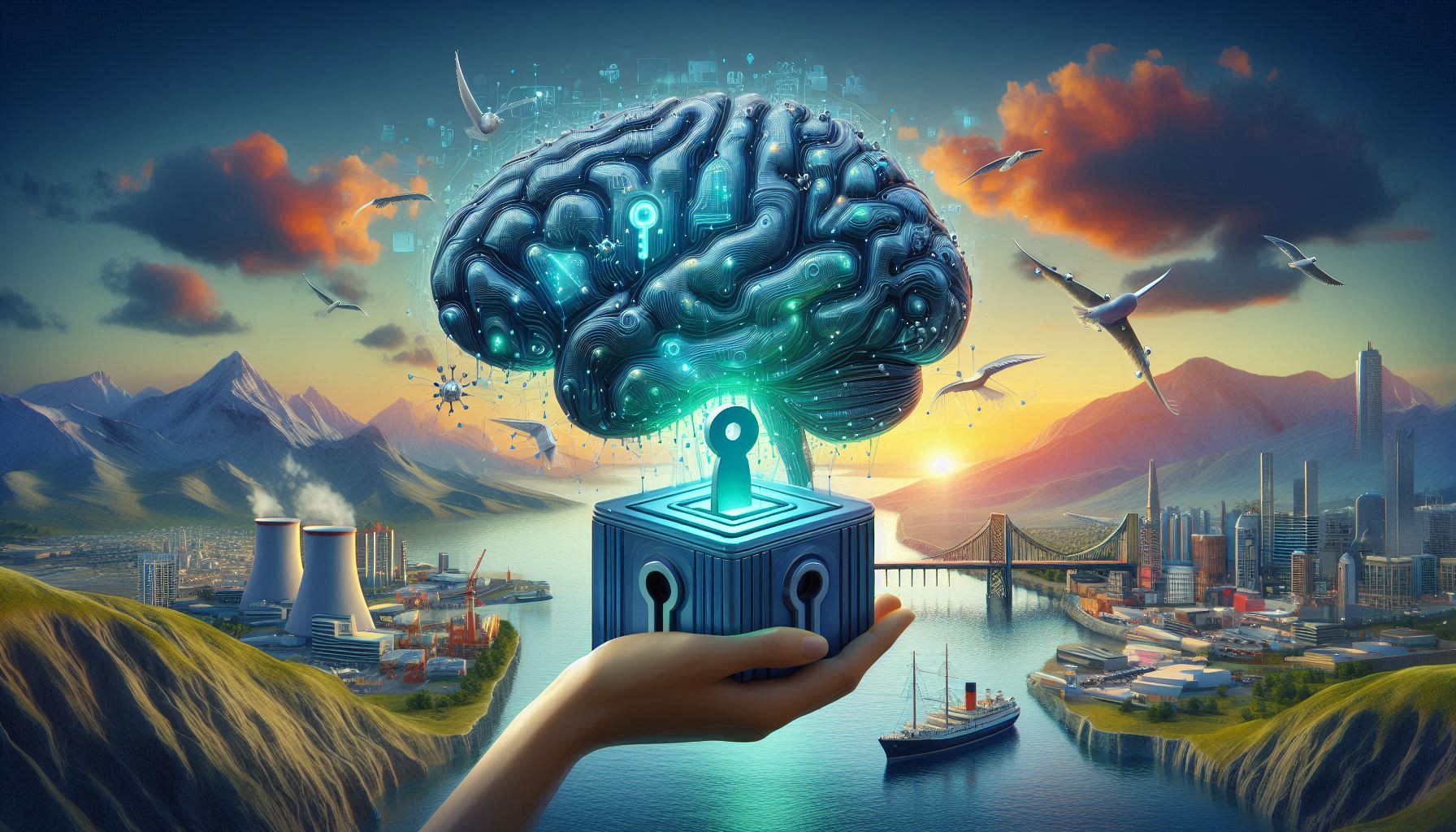Unlocking Deep Learning: Definition, Applications, and Real-World Impact
 AIperity
AIperity
Are you curious about the technology behind voice assistants, self-driving cars, and personalized recommendations? Deep learning is the powerhouse driving these innovations. In this article, we'll demystify deep learning, explore its applications, and discuss its profound impact on our daily lives.
Understanding deep learning is crucial in today's AI-driven world. We'll provide you with valuable insights into this transformative technology, its potential, and its challenges. By the end of this article, you'll have a clearer picture of how deep learning is shaping our future and the opportunities it presents for businesses and individuals alike.
What is Deep Learning?
Deep learning is a subset of machine learning, which itself is a branch of artificial intelligence (AI). It's inspired by the structure and function of the human brain, specifically the interconnected neurons in our neural networks.
At its core, deep learning uses artificial neural networks with multiple layers (hence "deep") to progressively extract higher-level features from raw input. For example, in image recognition, lower layers might identify edges, while higher layers might recognize more complex shapes or objects.
Key Characteristics of Deep Learning
1. Large Amounts of Data
Deep learning models thrive on vast amounts of data. The more data they're trained on, the better they perform. This is why companies like Google and Facebook, with access to enormous datasets, have been at the forefront of deep learning advancements.
2. Hierarchical Feature Learning
Unlike traditional machine learning methods that often require manual feature engineering, deep learning algorithms can automatically learn hierarchical feature representations from raw data.
3. End-to-End Learning
Deep learning models can learn directly from raw input to final output, eliminating the need for intermediate stages that are common in traditional machine learning pipelines.
4. Computational Intensity
Training deep learning models often requires significant computational resources, including powerful GPUs or specialized hardware like Google's Tensor Processing Units (TPUs).
Real-World Applications of Deep Learning
Deep learning has found applications across various industries. Here are some notable examples:
1. Computer Vision
From facial recognition systems to medical image analysis, deep learning has revolutionized how machines interpret visual information. For instance, AI-powered systems can now detect cancer in medical scans with accuracy rivaling that of human experts.
2. Natural Language Processing (NLP)
Deep learning has dramatically improved machine translation, sentiment analysis, and text generation. Technologies like GPT-3 can generate human-like text, answering questions and even writing articles.
3. Speech Recognition
Voice assistants like Siri, Alexa, and Google Assistant use deep learning to understand and respond to human speech with increasing accuracy.
4. Autonomous Vehicles
Self-driving cars rely heavily on deep learning algorithms to interpret sensor data, recognize objects, and make real-time decisions.
5. Recommender Systems
Netflix, Amazon, and Spotify use deep learning to provide personalized recommendations based on user behavior and preferences.
The Impact of Deep Learning on Various Sectors
Healthcare
Deep learning is transforming healthcare through improved diagnostic tools, personalized treatment plans, and drug discovery. For example, deep learning models can analyze genetic data to predict disease risk or identify potential drug candidates.
Finance
In the financial sector, deep learning is used for fraud detection, algorithmic trading, and credit scoring. These applications help institutions manage risk and make more informed decisions.
Education
Adaptive learning systems powered by deep learning can personalize educational content based on a student's performance and learning style, potentially revolutionizing how we approach education.
Entertainment
From creating realistic visual effects in movies to generating music, deep learning is pushing the boundaries of creativity in the entertainment industry.
Challenges and Ethical Considerations
While deep learning offers immense potential, it also presents several challenges:
Data Privacy: The need for large datasets raises concerns about data privacy and security.
Bias and Fairness: Deep learning models can perpetuate or amplify biases present in training data, leading to unfair outcomes.
Interpretability: Many deep learning models are "black boxes," making it difficult to understand how they arrive at their decisions.
Energy Consumption: Training large deep learning models requires significant computational resources, raising environmental concerns.
As experts in AI with over a decade of experience, we at AIperity believe it's crucial to address these challenges as we continue to advance deep learning technology.
The Future of Deep Learning
The field of deep learning is evolving rapidly. We anticipate several exciting developments in the near future:
More Efficient Models: Researchers are working on creating smaller, more efficient deep learning models that can run on edge devices with limited resources.
Improved Interpretability: New techniques are being developed to make deep learning models more transparent and interpretable.
Multimodal Learning: Future models will likely be able to integrate and process multiple types of data (text, image, audio) simultaneously, leading to more sophisticated AI systems.
Quantum Deep Learning: The intersection of quantum computing and deep learning could lead to unprecedented computational capabilities.
Conclusion
Deep learning is not just a technological buzzword; it's a transformative force reshaping industries and our daily lives. From healthcare to entertainment, its applications are vast and growing. As we continue to unlock the potential of deep learning, we're moving closer to creating AI systems that can perceive, learn, and reason in ways that were once the realm of science fiction.
For businesses and individuals alike, understanding deep learning is crucial to staying competitive in an AI-driven world. Whether you're a business owner looking to integrate AI into your operations or a professional aiming to future-proof your career, gaining knowledge about deep learning is a valuable investment.
To stay updated on the latest developments in deep learning and other AI technologies, visit our website at https://aiperity.com. We're here to help you navigate the exciting world of AI and harness its potential for your success.
Frequently Asked Questions
How is deep learning different from traditional machine learning?
Deep learning is a subset of machine learning that uses artificial neural networks with multiple layers. Unlike traditional machine learning, which often requires manual feature engineering, deep learning can automatically learn feature representations from raw data. It excels at handling large amounts of unstructured data and can often outperform traditional methods on complex tasks like image and speech recognition.
Do I need specialized hardware to work with deep learning?
While it's possible to experiment with deep learning on a standard computer, training large models typically requires more powerful hardware. Graphics Processing Units (GPUs) are commonly used due to their ability to perform parallel computations efficiently. For serious deep learning work, access to high-performance computing resources is often necessary. However, cloud computing services now offer accessible options for those without dedicated hardware.
How can businesses start incorporating deep learning into their operations?
Businesses can start by:
Identifying potential use cases within their operations (e.g., customer service chatbots, predictive maintenance, or demand forecasting)
Collecting and organizing relevant data
Partnering with AI experts or hiring data scientists with deep learning expertise
Starting with small pilot projects to demonstrate value before scaling up
Investing in necessary infrastructure and tools
Remember, successful implementation often requires a combination of technical expertise, quality data, and a clear understanding of business objectives.
We encourage you to follow AIperity for more insights on deep learning and other AI technologies:
Website: https://aiperity.com
YouTube: https://youtube.com/@aiperity
Fanpage: https://www.facebook.com/profile.php?id=61561931647082
Twitter: https://x.com/AIperity
Instagram: https://www.instagram.com/aiperity/
Subscribe to my newsletter
Read articles from AIperity directly inside your inbox. Subscribe to the newsletter, and don't miss out.
Written by
